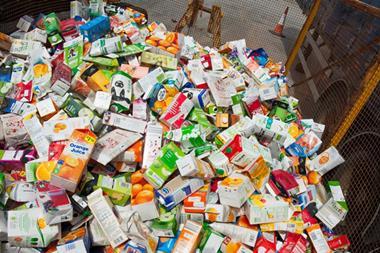Parliament has turned its attentions once again to reducing waste created by disposable coffee cups and plastic bottles, which the Association of Convenience Stores has warned could result in a deposit return scheme.
The Environmental Audit Committee has relaunched its inquiry into disposable coffee cups and plastic bottles, looking at ways to reduce the level of waste created by those products.
The ACS is highlighting the problems that a deposit return scheme could cause retailers.
“We will be submitting evidence to the Committee, urging them to focus on recycling measures that are effective, popular with the public and don’t add costs to small shops, such as improving the existing kerbside recycling schemes,” said chief executive James Lowman.
The Committee, which is taking written submissions until 29 September, is looking at the following issues around solutions for recycling bottles and cups:
- · What initiatives could be utilised to reduce coffee cup and plastic bottle waste or to lessen the impact of this waste? In particular what are the opportunities and risks associated with:
— Incentives to encourage the use of re-usable alternatives for these products.
— Charge, taxes, deposits or levies on the use of these products.
- · How can we encourage households, businesses, food and drink outlets, and offices to change behaviours or introduce policies to reduce their coffee cup and plastic bottle waste?
- · How are other countries working to reduce coffee cup and plastic bottle waste? What examples of best practice are there that the UK could learn from?
A survey of 1,210 UK retailers found that 71% thought a Deposit Return scheme would be impractical to implement due to the space required in store, according to the ACS.
The Scottish government has announced plans for a bottle deposit return scheme, but it is yet to decide whether the initiative would apply to small retailers.
The Scottish Grocers Federation warned that the scheme would either impose costs on local retailers if it extends to them, or drive customers to large stores if smaller shops are exempt.
SGF chief executive Pete Cheema said: “This is an atrocious decision by the Scottish government. Deposit return is too costly, too disruptive and too expensive.”
More information about the inquiry is available here.
















No comments yet